Search
Remove Ads
Advertisement
Summary 
Loading AI-generated summary based on World History Encyclopedia articles ...
Search Results
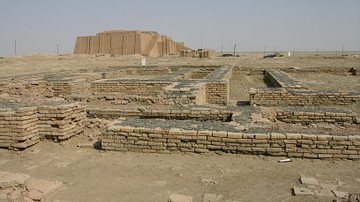
Definition
Ur
Ur was a city in the region of Sumer, southern Mesopotamia, and its ruins lie in what is modern-day Tell el-Muqayyar, Iraq. According to biblical tradition, the city is named after the man who founded the first settlement there, Ur, though...

Definition
Ur-Nammu
Ur-Nammu (r. 2047-2030 BCE) was the founder of the Third Dynasty of Ur in Sumer who initiated the so-called Ur III Period (2047-1750 BCE) also known as the Sumerian Renaissance. He is best known as the king who composed the oldest extant...

Definition
Code of Ur-Nammu
The Code of Ur-Nammu (c. 2100-2050 BCE) is the oldest extant law code in the world. It was written by the Sumerian king Ur-Nammu (r. 2047-2030 BCE) or his son Shulgi of Ur (r. 2029-1982 BCE) centuries before the famous Code of Hammurabi was...
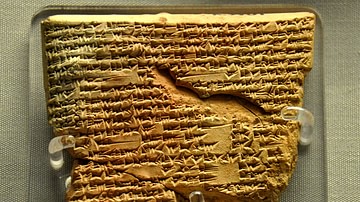
Article
Sargon and Ur-Zababa
Sargon and Ur-Zababa is a Sumerian poem, date of composition unknown, relating the rise to power of Sargon of Akkad (r. 2334-2279 BCE), founder of the Akkadian Empire. The work is classified as a Mesopotamian folktale, relying on motifs such...
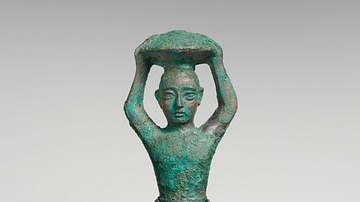
Definition
Shulgi of Ur
Shulgi of Ur (r. 2029-1982 BCE) is considered the greatest king of the Ur III Period in Mesopotamia (2047-1750 BCE). His father was Ur-Nammu (r.2047-2030 BCE), who founded the Third Dynasty of Ur, and his mother was a daughter of King Utu-Hegal...

Image
Ur-Nammu
Ur-Nammu (seated) bestows governorship on Ḫašḫamer, patesi (high priest) of Iškun-Sin (cylinder seal impression, c. 2100 BCE). Greenstone seal(clay impression of the cylinder seal) of Hashhamer, Governor of Ishkun-Sin. Third Dynasty...
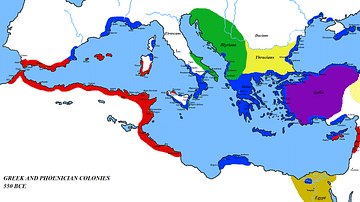
Definition
Uat-Ur
Uat-Ur was the ancient Egyptian name for the Mediterranean Sea (also known as Wadj-Wer) and is translated as 'the Great Green'. Uat-Ur was understood as a living entity imbued with the spirit of the divine which, like all other aspects of...

Article
The Death of Ur-Nammu
The Death of Ur-Nammu is a Sumerian lament over the passing of the king Ur-Nammu (r. 2047-2030 BCE), founder of the Third Dynasty of Ur, who was killed in battle fighting the Gutians in 2030 BCE. The poem is frequently cited for its depiction...
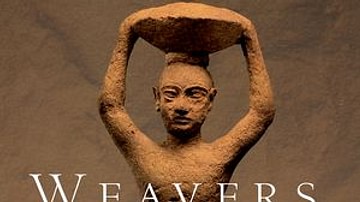
Article
Geme-Suen v Ur-Lugal's Wife - A Court Case in Ancient Mesopotamia
During the 21st century BCE, an era known as the Ur III period in Mesopotamia, many records of court hearings were drawn up in Umma, a city in what is now southern Iraq. One court record relates a dispute between two women. The name of one...

Video
UR Sumerian city 2300 BC
The first city in the world " UR " ( Sumerian city )
In this city knew Agriculture then here invented writing & here invented the wheel
And here the Prophet Abraham was born
View form the city in 2300 BC